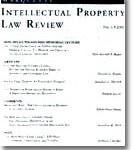Storytelling in Appellate Brief Writing
 At the end of July, both Professor Michael Smith and I attended the Applied Legal Storytelling Conference at Lewis and Clark Law School in Portland, Oregon. The conference was entitled “Chapter 2: Once Upon a Legal Story” and focused on storytelling in “ways that will directly and tangibly benefit law students (i.e. future lawyers) and legal practitioners (i.e. former law students).” The presentations I attended addressed ways to use storytelling to create a stronger narrative theme in a case and how to handle the ethical issues in storytelling.
At the end of July, both Professor Michael Smith and I attended the Applied Legal Storytelling Conference at Lewis and Clark Law School in Portland, Oregon. The conference was entitled “Chapter 2: Once Upon a Legal Story” and focused on storytelling in “ways that will directly and tangibly benefit law students (i.e. future lawyers) and legal practitioners (i.e. former law students).” The presentations I attended addressed ways to use storytelling to create a stronger narrative theme in a case and how to handle the ethical issues in storytelling.
One of the most intriguing presentations was Professor Kenneth Chestek’s talk “Judging by the Numbers: an Empirical Study of the Power of Story.” Professor Chestek conducted a study where he wrote four fictional test briefs: two that focused heavily on stating the law and applying it (the “pure logos” briefs), and two that focused on creating a narrative story into which the law was inserted and applied (the “story” briefs). (He wrote a logos brief and a story brief for both the petitioner and respondent.) Professor Chestek solicited appellate practitioners, appellate judges, appellate judicial law clerks, appellate court staff attorneys, and legal writing professors to read these briefs and rate their strength of persuasion. The participants knew they were taking part in a study, but they did not know who was conducting the study or what the purpose of the study was.

 Urine testing has become a familiar part of the sports landscape, but less so blood testing. However, the development of a blood test for human growth hormone has the potential to make blood testing of athletes more common.
Urine testing has become a familiar part of the sports landscape, but less so blood testing. However, the development of a blood test for human growth hormone has the potential to make blood testing of athletes more common. 